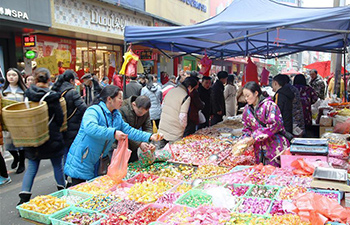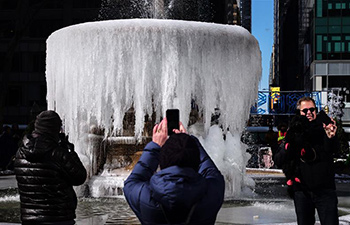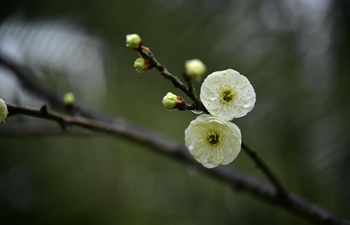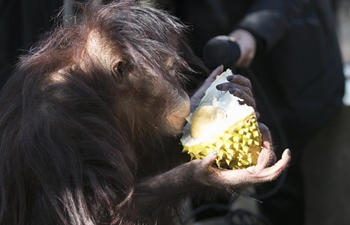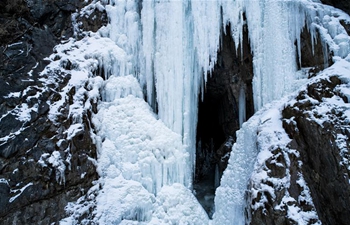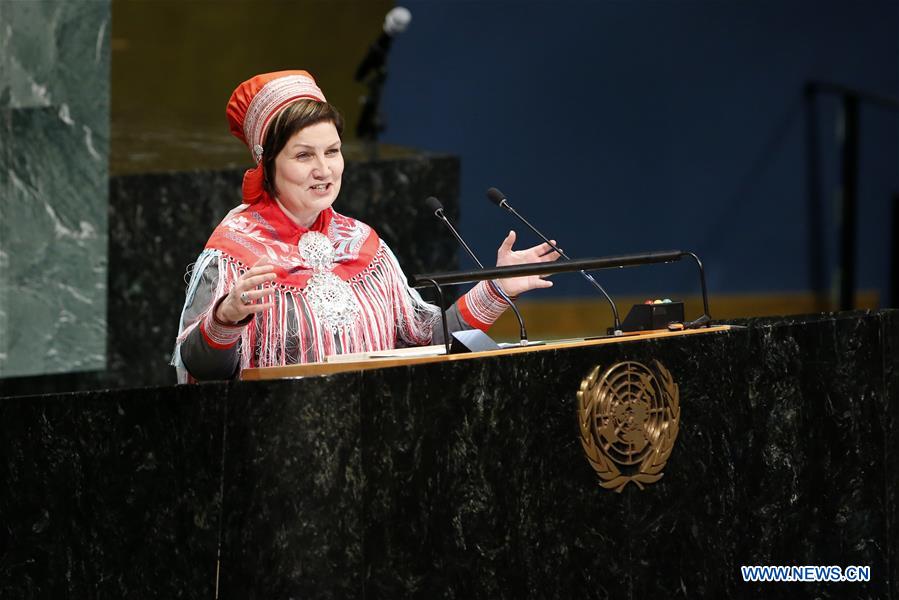
Aili Keskitalo, President of the Sami Parliament of Norway and Co-Chair of the Steering Committee for the organization of the International Year of Indigenous Languages representing indigenous people, addresses the launch ceremony of the International Year of Indigenous Languages at the UN headquarters in New York, Feb. 1, 2019. UN General Assembly (UNGA) president on Friday urged the international community to better "recover" and "preserve" indigenous languages. The International Year of Indigenous Languages is a UN observance in 2019 that aims to raise awareness of the consequences of the endangerment of indigenous languages across the world, and to establish a link between language, development, peace, and reconciliation.
UNITED NATIONS, Feb. 1 (Xinhua) -- UN General Assembly (UNGA) president on Friday urged the international community to better "recover" and "preserve" indigenous languages.
"This international year must serve as a platform from which we can reverse the alarming trend of the extinction of indigenous languages, to recover and preserve them," Maria Fernanda Espinosa Garces said when addressing the launch ceremony of the International Year of Indigenous Languages, at UN headquarters in New York.
The International Year of Indigenous Languages is a UN observance in 2019 that aims to raise awareness of the consequences of the endangerment of indigenous languages across the world, and to establish a link between language, development, peace, and reconciliation.
The UNGA president underscored the close connection between indigenous languages and ancestral culture and knowledge, saying that "they are much more than tools for communication, they are channels for human legacies to be handed down."
"Each indigenous language has an incalculable value for humankind," she said, calling each "a treasure laden with history, values, literature, spirituality, perspectives and knowledge, developed and garnered over millennium."
Indigenous languages are symbols of their people's identity, "vectors for values, ways of life and expressions of their connections with earth," according to the president, who said they are "crucial" for survival.
"When a language dies," she said, "it takes with it all of the memory bound up inside it."
Although there are still 4,000 indigenous languages in existence across the globe, many are on the brink of extinction, she noted.
Juan Evo Morales Ayma, president of Bolivia, called on those present to work together through dialogue to promote policies which help to preserve indigenous lives, identities, values and cultures.
There are 770 million indigenous people across 90 countries, living in many biodiverse regions, the president noted.
"As indigenous people, our languages are those of the earth and it is those languages that we use to speak with our mother," he said, saying "the health of our languages is connected to the health of the earth."
"We lose our connection and our ancient ways of knowing of the earth when our languages fall silent," he said, noting that "for the sake of future generations we must ensure they too can speak the language of our ancestors."





